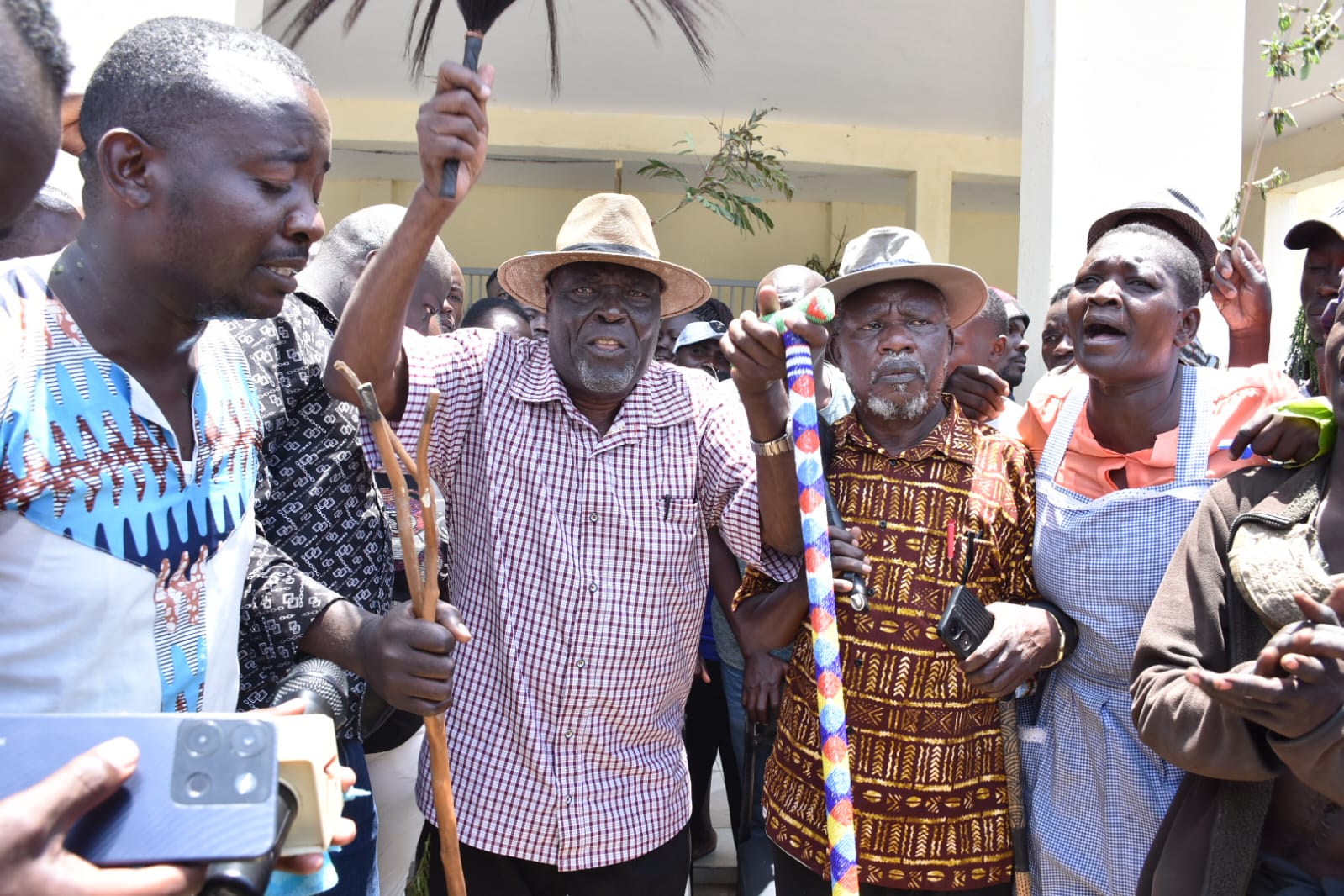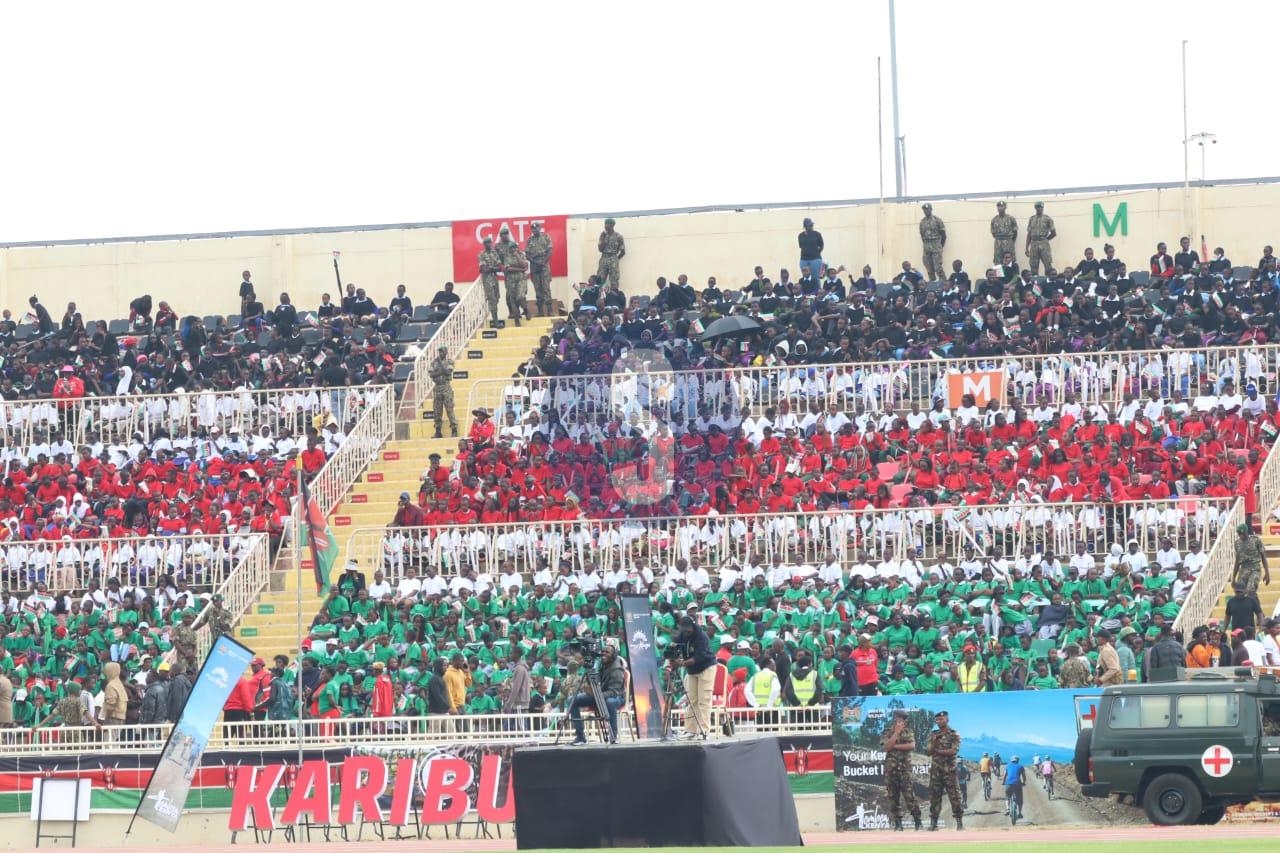

Chairman of the Luo Council of Elders, Mzee Odungi Randa with other elders mourn the death of former Prime Minister Raila Odinga /Faith Matete
The Luo council of elders chairman Mzee Odungi Randa has supported the decision to inter the late Raila Odinga at his ancestral home in Kang’o Ka Jaramogi, Bondo, describing it as culturally rightful and spiritually meaningful.
Randa dismissed criticisms surrounding the burial site, emphasising that it aligns with Biblical teachings and Luo customs.
“There is absolutely nothing wrong with Raila being buried at his father’s homestead,” he said.
“Even in the Bible, Joseph’s remains were returned and buried in his father’s land. That is how it should be.”
There had been widespread anticipation that the former Prime Minister would be laid to rest at Opoda Farm, his private residence, located about seven kilometres away.
But being buried beside his father, Jaramogi Oginga Odinga, was fully consistent with Luo tradition, the chairman said.
“His brother, Oburu Oginga, could also choose to be buried near him through a will and that would still honour our cultural values,” Randa added.
Randa also shed light on the customs observed by Mama Ida, explaining that according to traditions, a widow must visit her husband’s grave for four consecutive days before the mourning period officially ends.
“After the fourth day, the mourning phase concludes and normal life begins to resume,” he said.
He further addressed the long-held practice where widows shave their heads following the burial of their husbands. In Ida’s case, he said, the rite would be performed symbolically.
“Her hair is precious; it has taken years to grow. Instead of a full shave, we shall do a light trim as a cultural gesture,” he explained.
The elder expressed concern over what he termed the slow erosion of Luo customs, blaming the growing influence of Western culture for diluting traditional practices.
“Raila was my partner in the effort to revive our heritage. Now that he is gone, I fear our identity is at risk,” he said.
Randa criticised modern funeral trends, including prolonged mortuary storage and large-scale food preparations during mourning, saying they contradict traditional norms.
“In our tradition, burial used to take place within two days. We never cooked in homes where there was mourning; neighbours brought food like porridge, potatoes, or githeri to support the bereaved,” he recalled.
The elder revealed that he has already written a will outlining how his own burial should be conducted. He said this is meant to serve as a model for preserving cultural pride.
“I have left clear instructions. Our people must rediscover the beauty of our traditions and stop imitating foreign ways,” he concluded.


















